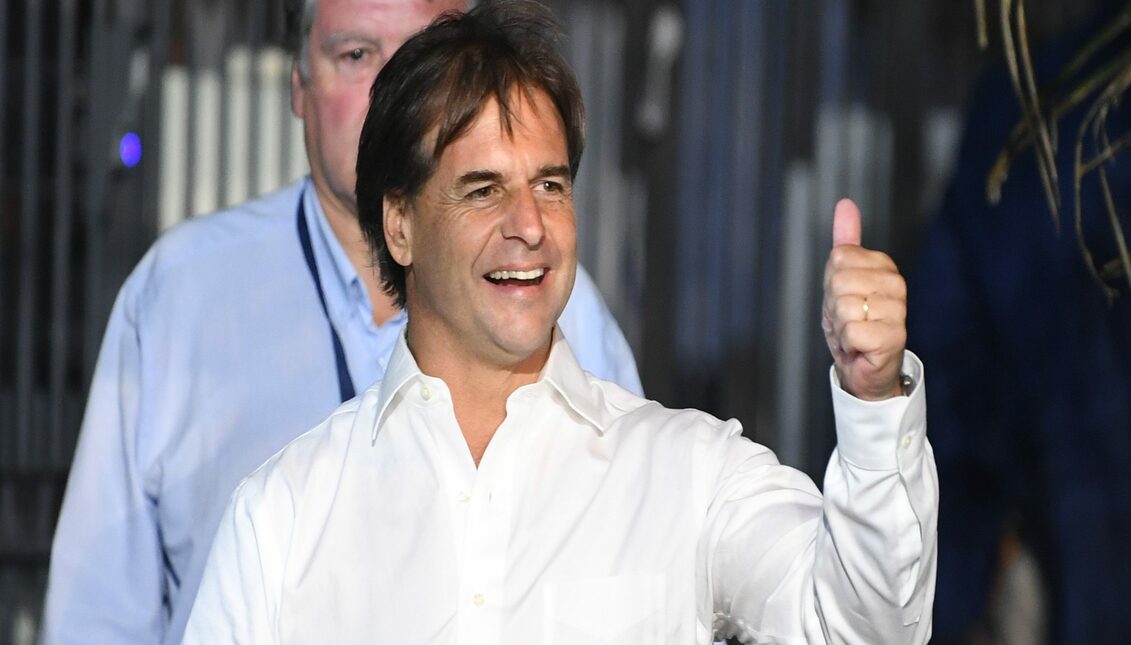
Who's who: Uruguay's new president
Who's who: brief Profile of Luis Lacalle Pou, New President-Elect of Uruguay
Luis Alberto Alejandro Aparicio Lacalle Pou, the newly elected president in Uruguay, has a political heritage as long as his name. Great-grandson of Luis Alberto de Herrera, one of the most relevant politicians in Uruguay during the 20th century, son of Luis Alberto Lacalle Herrera, Uruguayan president between 1990 and 1995, and Julia Pou, senator during the period 2000-2005. He was first deputy at the age of 26, in 2000, and re-elected to office until 2015, when he got a seat as senator for the period that is ending. Like all his family, he has always been part of the Partido Nacional, one of the oldest on the planet, founded in 1836.
This is the second time the Uruguayan lawyer has stood in the presidential elections. The first was in 2014, when he lost to Tabaré Vázquez of the Frente Amplio.
To make it to the presidency on this occasion, Lacalle made a "multicolored coalition" that grouped five parties: the Partido Nacional, the Colorado Party (also founded in 1836), the Independent Party (2002), the People's Party (2016) and the Cabildo Abierto (2019). In so doing, it gathered a spectrum ranging from the populist right to the center-left. The triumph of the multicolored coalition comes after three consecutive mandates of the left-wing Frente Amplio party, to which the renowned former president José Mujica belongs, and which still has a great weight in the legislative branch.
RELATED CONTENT
Uruguay, unlike the rest of the region, has not had any social outbreaks in recent times, as in general terms the quality of life is very high. However, it has its own challenges, not everything is rosy: the slowdown of the economy since 2014, the widespread aging of its small population, one of the highest suicide rates on the continent, high levels of school dropout and an education that is not preparing the population for the challenges of automation and artificial intelligence are some of the concerns that mobilized the population in the last elections.
Uruguay is a country that, exceptionally, has been characterized by escaping the tendency to polarization of the rest of the continent and to reassure its voters, Lacalle announced that he did not intend to demolish the successes of the Frente Amplio during its fifteen years of government, especially in relation to social investment and civil rights won (legalization of marijuana, abortion, egalitarian marriage and comprehensive law for trans people, especially). The outgoing president, for his part, affirmed that "there is no drama if there is alternation of power"; something that is otherwise healthy in any representative democracy.
Among his distinctive proposals was the idea of asking for an audit of the State as soon as he takes office in order to know the real state of the negotiations and to clarify responsibilities and some "shock" measures in productivity and competitiveness that seek to reduce production costs in order to encourage investment and exports. These measures would seek, among others, to encourage the development of infrastructure and greater openness in international relations. They would also include a "new industrial relations model" that would seek to regulate wage negotiations between employees and employers.











LEAVE A COMMENT: